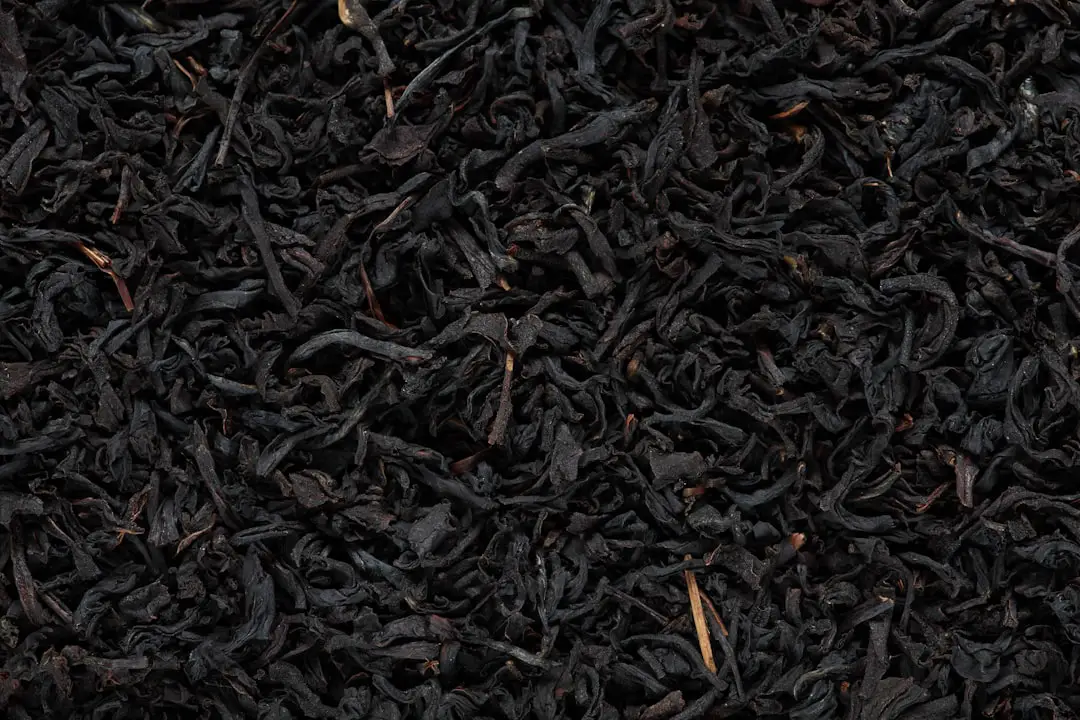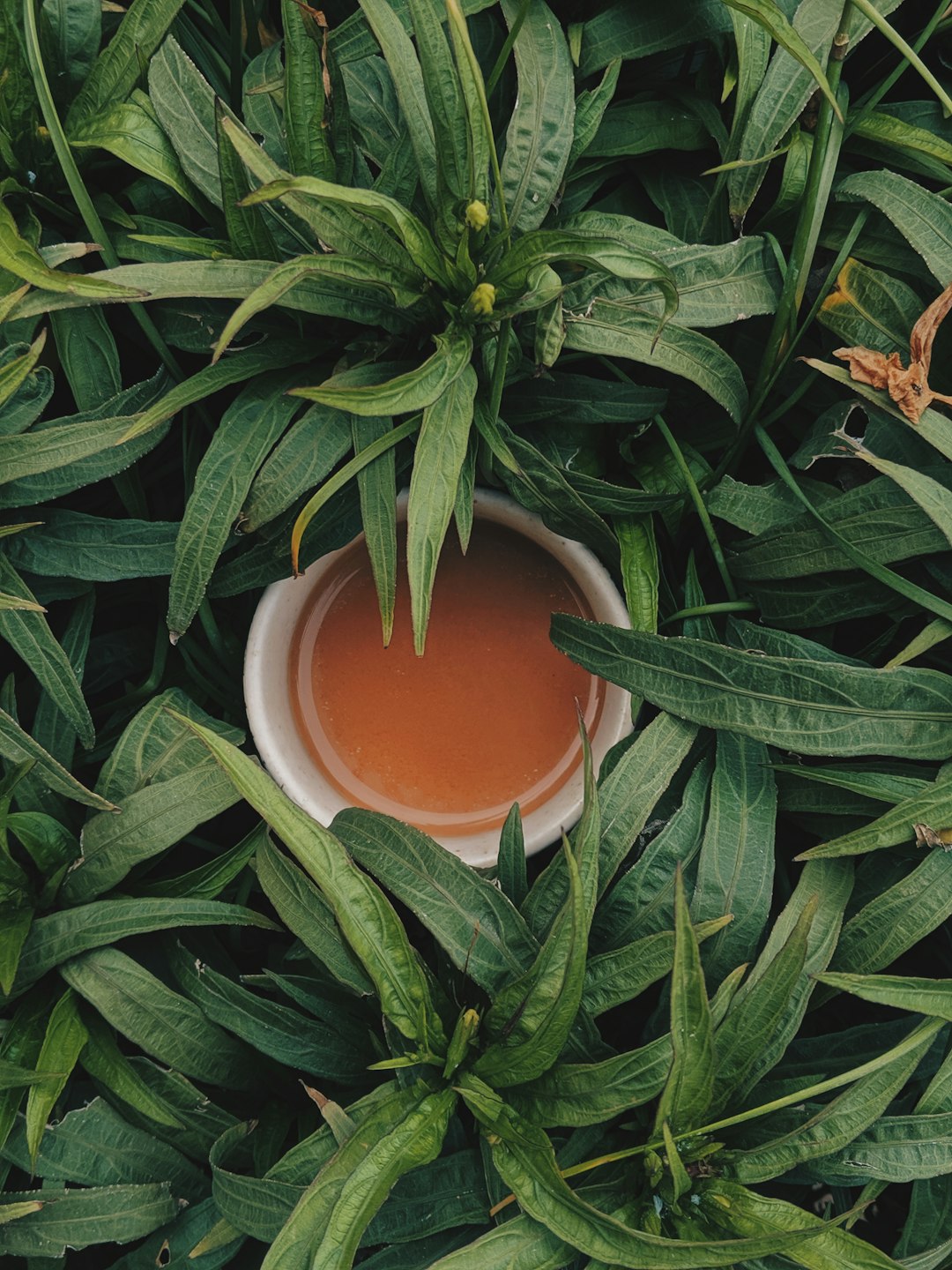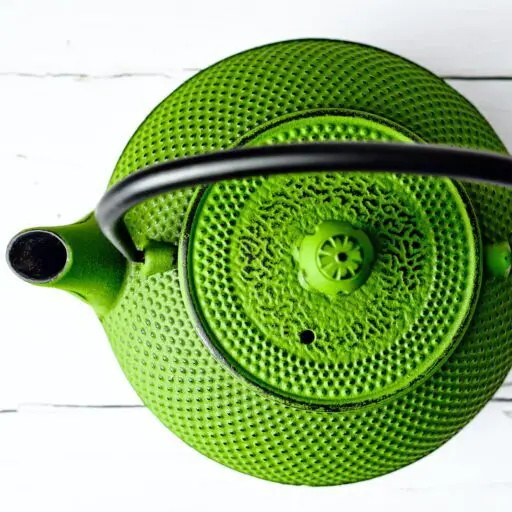Support our educational content for free when you purchase through links on our site. Learn more
Discover 15 Surprising Chamomile Tea Benefits You Never Knew About! 🌼

Have you ever found yourself tossing and turning at night, desperately seeking a remedy for your restless mind? If so, you’re not alone! Many of us have turned to chamomile tea, that warm, golden elixir, hoping to find solace in its soothing embrace. But did you know that chamomile tea offers much more than just a peaceful night’s sleep? In this article, we’ll explore 15 incredible benefits of chamomile tea that might just surprise you! From easing digestive woes to boosting your immune system, chamomile has a lot to offer.
Imagine sipping on a cup of chamomile tea while unwinding after a long day, knowing that you’re also giving your body a gentle hug of health. 🌙✨ Whether you’re a long-time chamomile lover or a curious newcomer, this guide will open your eyes to the myriad ways this humble herbal infusion can enhance your well-being. So, grab your favorite mug and let’s dive into the world of chamomile tea!
Key Takeaways
- Promotes Relaxation and Sleep: Chamomile tea is renowned for its calming effects, making it a perfect bedtime beverage. 😴
- Supports Digestive Health: It can soothe an upset stomach and alleviate digestive discomfort, making it a go-to after meals.
- Rich in Antioxidants: Chamomile contains antioxidants that may help strengthen the immune system and fight inflammation.
- Versatile Uses: Beyond tea, chamomile can be incorporated into recipes and skincare routines for added benefits.
- Caution for Allergies: Individuals with allergies to plants in the daisy family should consult a healthcare professional before consuming chamomile.
Ready to experience the magic of chamomile? Check out our favorite brands like Traditional Medicinals and Yogi Tea for the best chamomile options! Shop Traditional Medicinals | Shop Yogi Tea.
Table of Contents
- Quick Tips and Facts about Chamomile Tea 🌼
- The Fascinating History of Chamomile Tea 🌍
- 10 Amazing Health Benefits of Chamomile Tea 🌟
- How to Brew the Perfect Cup of Chamomile Tea ☕
- Chamomile Tea Dosage: How Much Should You Drink? 📏
- Incorporating Chamomile into Your Diet: Recipes and Ideas 🍽️
- Potential Side Effects of Chamomile Tea ⚠️
- Chamomile Tea vs. Other Herbal Teas: A Comparative Analysis ⚔️
- Takeaways: Why You Should Consider Drinking Chamomile Tea 💡
- Chamomile FAQs: Your Questions Answered ❓
- Conclusion: Sip Your Way to Wellness with Chamomile Tea 🍵
- Recommended Links for Chamomile Lovers 🔗
- Reference Links for Further Reading 📚
Quick Tips and Facts about Chamomile Tea 🌼
Did you know that chamomile tea isn’t actually a “tea” at all? 🤯 It’s an herbal infusion brewed from the daisy-like flowers of the Asteraceae plant family. This gentle giant of the herbal tea world boasts a naturally sweet, apple-like flavor and aroma. But don’t let its delicate nature fool you – chamomile packs a surprising punch when it comes to health benefits!
Here at Tea Brands™, we’re passionate about all things tea – even the imposter ones! 😉 Let’s dive into some quick facts about this beloved beverage:
- Caffeine-free? ✅ Absolutely! Chamomile tea is naturally caffeine-free, making it the perfect bedtime beverage. 😴
- Taste? Imagine a warm hug in a mug! 😌 It has a subtly sweet, floral taste with hints of apple. 🍎
- Aroma? A soothing, calming aroma that instantly puts you at ease. 😌
- Best time to drink? Anytime! But it’s especially popular before bedtime to promote relaxation and sleep. 🌙
- Brewing time? Steep for 5-10 minutes in hot water. ⏱️
- Varieties? German chamomile ( Matricaria recutita) and Roman chamomile (Chamaemelum nobile) are the most common.
Want to learn more about the amazing world of tea? Check out our article on The 10 Best Teas in the World for Health: A Tea Taster’s Guide to Wellness.
The Fascinating History of Chamomile Tea 🌍

Chamomile’s use dates back thousands of years, making it one of the oldest recorded medicinal herbs. From ancient Egypt to the Roman Empire, this humble flower has been revered for its healing properties.
Ancient Origins and Traditional Uses 🏺
- Ancient Egypt: Egyptians dedicated chamomile to their sun god, Ra, and used it to treat fevers and other ailments. ☀️
- Ancient Greece: Hippocrates, the father of medicine, recommended chamomile for digestive issues and menstrual cramps.
- Roman Empire: Roman soldiers used chamomile to make wound salves and to soothe battle nerves. ⚔️
Chamomile Through the Ages ⏳
- Middle Ages: Chamomile remained a popular remedy throughout Europe, used for everything from insomnia to skin conditions.
- Modern Times: Today, chamomile is enjoyed worldwide as a soothing and flavorful beverage, and its medicinal properties are still being studied.
From ancient rituals to modern medicine cabinets, chamomile has certainly stood the test of time!
Want to explore the rich history and culture of tea? Visit our Tea Culture and History category for more fascinating insights.
10 Amazing Health Benefits of Chamomile Tea 🌟
Chamomile tea isn’t just a delicious and soothing drink – it’s also been linked to a wide range of health benefits. While more research is needed, here are 10 potential benefits that have piqued our interest:
- Promotes Relaxation and Sleep: Chamomile contains an antioxidant called apigenin, which may have calming effects on the brain and promote sleep. 😴 A study published in the Journal of Advanced Nursing found that chamomile tea improved sleep quality in postpartum women.
- Reduces Anxiety: Feeling stressed? Chamomile might be able to help! A 2016 study found that chamomile extract significantly reduced anxiety symptoms in people with generalized anxiety disorder (GAD).
- Soothes an Upset Stomach: Chamomile has traditionally been used to ease digestive discomfort, including gas, bloating, and indigestion.
- May Help with Menstrual Cramps: Some studies suggest that chamomile may help to reduce the severity of menstrual cramps.
- May Boost the Immune System: Chamomile contains antioxidants that may help to strengthen the immune system and fight off infections.
- May Have Anti-Inflammatory Effects: Chamomile contains compounds with anti-inflammatory properties, which may help to reduce inflammation throughout the body.
- May Help Lower Blood Sugar Levels: Some studies suggest that chamomile may help to regulate blood sugar levels in people with diabetes.
- May Promote Heart Health: Chamomile contains flavonoids, which are antioxidants that may help to protect the heart from disease.
- May Help with Skin Conditions: Chamomile is often applied topically to soothe skin irritations like eczema and acne.
- May Have Anti-Cancer Properties: While more research is needed, some studies suggest that chamomile may have anti-cancer effects.
Disclaimer: It’s important to note that these are potential benefits, and more research is needed to confirm them. It’s always best to consult with your doctor before using chamomile for medicinal purposes.
Interested in exploring the health benefits of other teas? Our Health Benefits of Tea category is a great place to start!
How to Brew the Perfect Cup of Chamomile Tea ☕
Brewing chamomile tea is as easy as a walk in the park! Here’s our step-by-step guide to help you unlock the full flavor and aroma of this soothing beverage:
What You’ll Need:
- Loose chamomile flowers or tea bags
- Hot water (around 200°F or 93°C)
- Mug or teapot
- Strainer (if using loose flowers)
Step 1: Heat the Water
Bring fresh, filtered water to a boil, then let it cool slightly for a minute or two. Chamomile is best brewed with water that’s just below boiling point.
Step 2: Prepare the Tea
- Tea Bags: Place a tea bag in your mug or teapot.
- Loose Flowers: Add 1-2 teaspoons of loose chamomile flowers per cup of water to your strainer.
Step 3: Steep the Tea
Pour the hot water over the tea bag or strainer. Cover the mug or teapot with a lid to trap the heat and allow the chamomile to infuse properly.
Step 4: Steep to Your Liking
Steep for 5-10 minutes, depending on your desired strength. A longer steeping time will result in a stronger, more robust flavor.
Step 5: Remove the Tea
- Tea Bags: Remove the tea bag and discard.
- Loose Flowers: Remove the strainer and discard the flowers.
Step 6: Sweeten (Optional)
Chamomile tea is naturally sweet, but you can add a touch of honey or your preferred sweetener if desired.
Step 7: Enjoy!
Sip and savor your perfectly brewed cup of chamomile tea!
Pro Tip: For a refreshing twist, try brewing chamomile tea with cold water overnight in the refrigerator. This method, known as cold-brewing, extracts fewer tannins and results in a smoother, less bitter flavor.
Chamomile Tea Dosage: How Much Should You Drink? 📏
While chamomile tea is generally considered safe for most people, it’s important to consume it in moderation. There’s no one-size-fits-all answer to the question of how much chamomile tea you should drink, as the appropriate dosage can vary depending on factors like:
- Your Age and Health Status: Pregnant or breastfeeding women, individuals with allergies to plants in the daisy family, and people taking certain medications should consult with their doctor before consuming chamomile tea.
- The Form of Chamomile: The concentration of chamomile can vary depending on whether you’re drinking tea, taking capsules, or using other forms of the herb.
- Your Individual Tolerance: Some people may be more sensitive to the effects of chamomile than others.
General Guidelines:
- Tea: Most adults can safely enjoy 1-4 cups of chamomile tea per day.
- Capsules: Follow the dosage instructions on the product label.
Important Note: It’s always best to start with a lower dosage and gradually increase it as needed, paying attention to how your body reacts. If you experience any adverse effects, discontinue use and consult with your doctor.
Incorporating Chamomile into Your Diet: Recipes and Ideas 🍽️
Chamomile isn’t just for tea! Its delicate, apple-like flavor can add a touch of sweetness and complexity to a variety of dishes. Here are a few ideas to inspire your culinary creativity:
Beverages:
- Chamomile Iced Tea: Brew a strong batch of chamomile tea and chill it in the refrigerator. Serve over ice with a squeeze of lemon or a sprig of mint.
- Chamomile Latte: Combine warm chamomile tea with steamed milk and a touch of honey for a soothing and comforting latte.
- Chamomile Cocktails: Chamomile’s floral notes can add a unique twist to cocktails. Try muddling chamomile flowers with gin, lemon juice, and simple syrup for a refreshing summer drink.
Food:
- Chamomile Infused Honey: Add a handful of dried chamomile flowers to a jar of honey and let it infuse for several weeks. Drizzle over toast, yogurt, or cheese.
- Chamomile Baked Goods: Add chamomile flowers to cake, cookie, or bread recipes for a subtle floral aroma and flavor.
- Chamomile Salad Dressings: Whisk chamomile tea with olive oil, vinegar, and your favorite herbs and spices for a light and refreshing salad dressing.
Other Creative Uses:
- Chamomile Hair Rinse: Brew a strong batch of chamomile tea and let it cool. Pour it over your hair after shampooing and conditioning for added shine and softness.
- Chamomile Facial Steam: Add a handful of chamomile flowers to a bowl of hot water. Drape a towel over your head and lean over the bowl, allowing the steam to open your pores and soothe your skin.
Potential Side Effects of Chamomile Tea ⚠️
While chamomile tea is generally safe for most people, it’s important to be aware of potential side effects, especially if you:
- Are allergic to plants in the daisy family: Chamomile belongs to the Asteraceae family, which also includes ragweed, marigolds, and chrysanthemums. If you’re allergic to any of these plants, you may also be allergic to chamomile.
- Are pregnant or breastfeeding: There’s limited research on the safety of chamomile during pregnancy and breastfeeding. It’s best to err on the side of caution and avoid it.
- Are taking certain medications: Chamomile may interact with certain medications, such as blood thinners and sedatives. Talk to your doctor before consuming chamomile if you’re taking any medications.
Common Side Effects:
- Drowsiness: Chamomile’s calming effects can cause drowsiness, especially in large amounts.
- Allergic reactions: Some people may experience allergic reactions to chamomile, such as skin rashes, itching, or swelling.
- Upset stomach: In rare cases, chamomile may cause an upset stomach, nausea, or vomiting.
Serious Side Effects (Rare):
- Anaphylaxis: Anaphylaxis is a severe, life-threatening allergic reaction that can cause difficulty breathing, swelling of the throat, and a drop in blood pressure. Seek immediate medical attention if you experience any of these symptoms after consuming chamomile.
If you experience any adverse effects after consuming chamomile tea, discontinue use and consult with your doctor.
Chamomile Tea vs. Other Herbal Teas: A Comparative Analysis ⚔️
Chamomile often steals the show in the herbal tea world, but it’s not the only soothing sip in town! Let’s compare chamomile to other popular herbal teas:
| Feature | Chamomile Tea | Peppermint Tea | Lavender Tea | Rooibos Tea |
|---|---|---|---|---|
| Flavor | Sweet, floral, apple-like | Minty, refreshing | Floral, slightly sweet | Naturally sweet, slightly nutty |
| Caffeine | Caffeine-free | Caffeine-free | Caffeine-free | Caffeine-free |
| Main Benefits | Relaxation, sleep, digestion | Digestion, headaches, nausea | Relaxation, sleep, anxiety | Antioxidants, heart health, digestion |
| Best Time | Evening, before bed | After meals, for headaches | Evening, before bed | Anytime |
| Potential Drawbacks | May cause drowsiness, allergies in some people | May worsen acid reflux in some people | May interact with certain medications | May have laxative effects in large amounts |
Which herbal tea is right for you? It depends on your individual preferences and needs. Experiment with different types to find your perfect match!
Explore our Herbal Tea category to discover a world of flavors and benefits!
Takeaways: Why You Should Consider Drinking Chamomile Tea 💡
Chamomile tea, with its rich history and potential health benefits, deserves a prime spot in your tea cupboard. Here’s why:
- A Natural Sleep Aid: Struggling to get a good night’s sleep? Chamomile’s calming properties can help you unwind and drift off to dreamland.
- A Digestive Soother: Whether you’re feeling bloated, gassy, or just a little off, chamomile can help to soothe your stomach and ease digestive discomfort.
- A Delicious and Versatile Beverage: Chamomile’s naturally sweet, apple-like flavor makes it a delightful drink to enjoy on its own or as a base for other beverages and recipes.
Ready to experience the magic of chamomile? Here are a few of our favorite brands:
- Traditional Medicinals: [CHECK PRICE on:] Amazon | Walmart | Traditional Medicinals Official Website
- Yogi Tea: [CHECK PRICE on:] Amazon | Walmart | Yogi Tea Official Website
- Harney & Sons: [CHECK PRICE on:] Amazon | Walmart | Harney & Sons Official Website
No matter how you choose to enjoy it, chamomile tea is a delicious and soothing way to support your overall well-being.
Conclusion: Sip Your Way to Wellness with Chamomile Tea 🍵

In a world filled with hustle and bustle, chamomile tea stands out as a gentle reminder to slow down and take care of ourselves. With its soothing properties, delightful flavor, and potential health benefits, it’s no wonder that chamomile has been cherished for centuries.
Positives and Negatives of Chamomile Tea
Positives:
- Promotes Relaxation: Chamomile is renowned for its calming effects, making it an excellent choice for those seeking better sleep and reduced anxiety.
- Digestive Aid: It can soothe an upset stomach and alleviate digestive discomfort, making it a go-to after meals.
- Versatile Use: Chamomile can be enjoyed as a tea, infused in recipes, or even used in skincare.
Negatives:
- Allergic Reactions: Some individuals may experience allergies, especially if they are sensitive to plants in the daisy family.
- Potential Drug Interactions: Chamomile may interact with certain medications, so it’s essential to consult with a healthcare provider if you’re on medication.
- Drowsiness: While this can be a positive for sleep, it may not be ideal if you need to remain alert.
Overall, we confidently recommend incorporating chamomile tea into your wellness routine. Its myriad benefits and comforting qualities make it a delightful addition to your daily rituals. So, why not brew a cup and experience the magic for yourself? 🌼
Recommended Links for Chamomile Lovers 🔗
- Traditional Medicinals Chamomile Tea: [CHECK PRICE on:] Amazon | Walmart | Traditional Medicinals Official Website
- Yogi Tea Chamomile: [CHECK PRICE on:] Amazon | Walmart | Yogi Tea Official Website
- Harney & Sons Chamomile: [CHECK PRICE on:] Amazon | Walmart | Harney & Sons Official Website
- Books on Chamomile and Herbal Teas: Herbal Tea Book | Chamomile Benefits Book
Chamomile FAQs: Your Questions Answered ❓

Is it safe to drink chamomile tea every day?
Yes, for most people! Drinking chamomile tea daily is generally considered safe and can provide numerous health benefits. However, it’s essential to listen to your body and consult a healthcare professional if you have any concerns or underlying health conditions.
What does chamomile tea do for a woman’s body?
Chamomile tea may offer several benefits for women, including:
- Menstrual Relief: It can help soothe menstrual cramps and reduce anxiety associated with PMS.
- Sleep Aid: Many women find chamomile tea helpful for promoting relaxation and improving sleep quality.
- Digestive Health: Chamomile can alleviate digestive issues, which may be particularly beneficial during menstruation.
What is the best time to drink chamomile tea?
The best time to drink chamomile tea is in the evening or before bedtime. Its calming properties can help signal your body that it’s time to wind down and prepare for sleep. However, it can also be enjoyed throughout the day to soothe stress and anxiety.
Read more about “🍵 The 10 Best Teas in the World for Health: A Tea Taster’s Guide to Wellness”
Does chamomile tea actually make you sleepy?
Yes, it can! Chamomile tea contains apigenin, an antioxidant that binds to receptors in the brain, promoting drowsiness and reducing insomnia. Many people find that drinking chamomile tea before bed helps them relax and fall asleep more easily.
Read more about “10 Surprising Benefits of Chamomile Tea … 🌼”
Can chamomile tea help with digestive issues?
Absolutely! Chamomile tea has been traditionally used to soothe digestive discomfort, including gas, bloating, and indigestion. Its antispasmodic properties can help relax the muscles of the gastrointestinal tract, providing relief.
Read more about “Discover the Top 15 Tea Brands in the USA You Need to Try in 2024! 🍵”
Can children drink chamomile tea?
Chamomile tea can be safe for children, but it’s essential to consult with a pediatrician before introducing it to their diet. Start with small amounts and monitor for any allergic reactions, especially if they have allergies to plants in the daisy family.
Read more about “The Ultimate Guide to the 15 Best Teas for Health: Sip Your Way to Wellness 🍵”
Reference Links for Further Reading 📚
- WebMD on Chamomile Benefits
- Real Simple on Chamomile Tea Benefits
- Healthline on Chamomile Tea
- Mayo Clinic on Herbal Teas
With all this knowledge in your back pocket, you’re ready to embrace the world of chamomile tea! So go ahead, brew a cup, and let the soothing journey begin! 🌼✨


